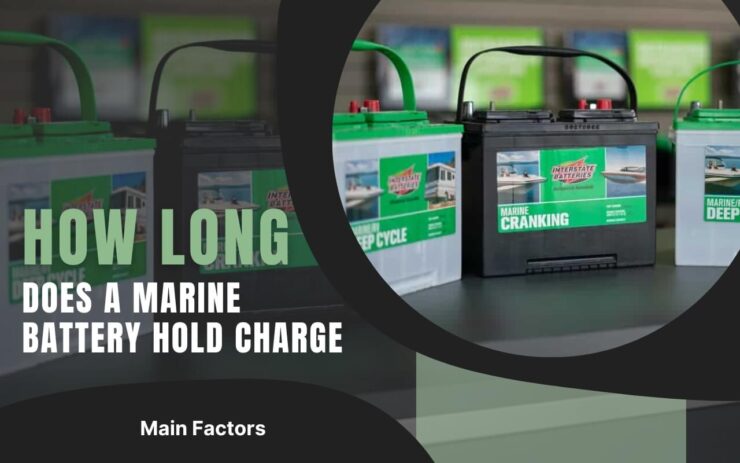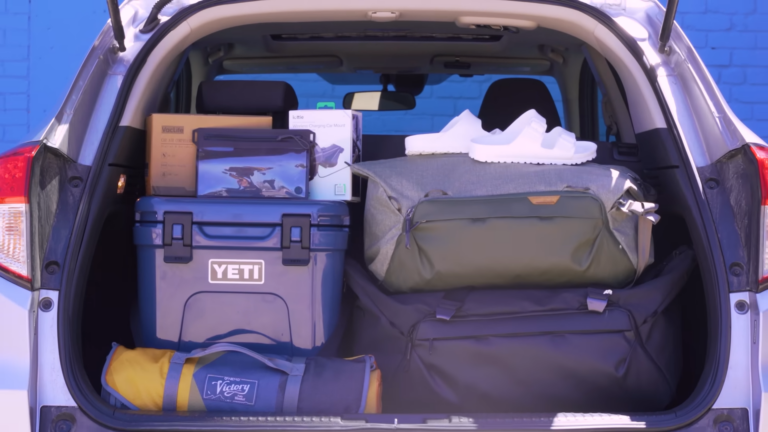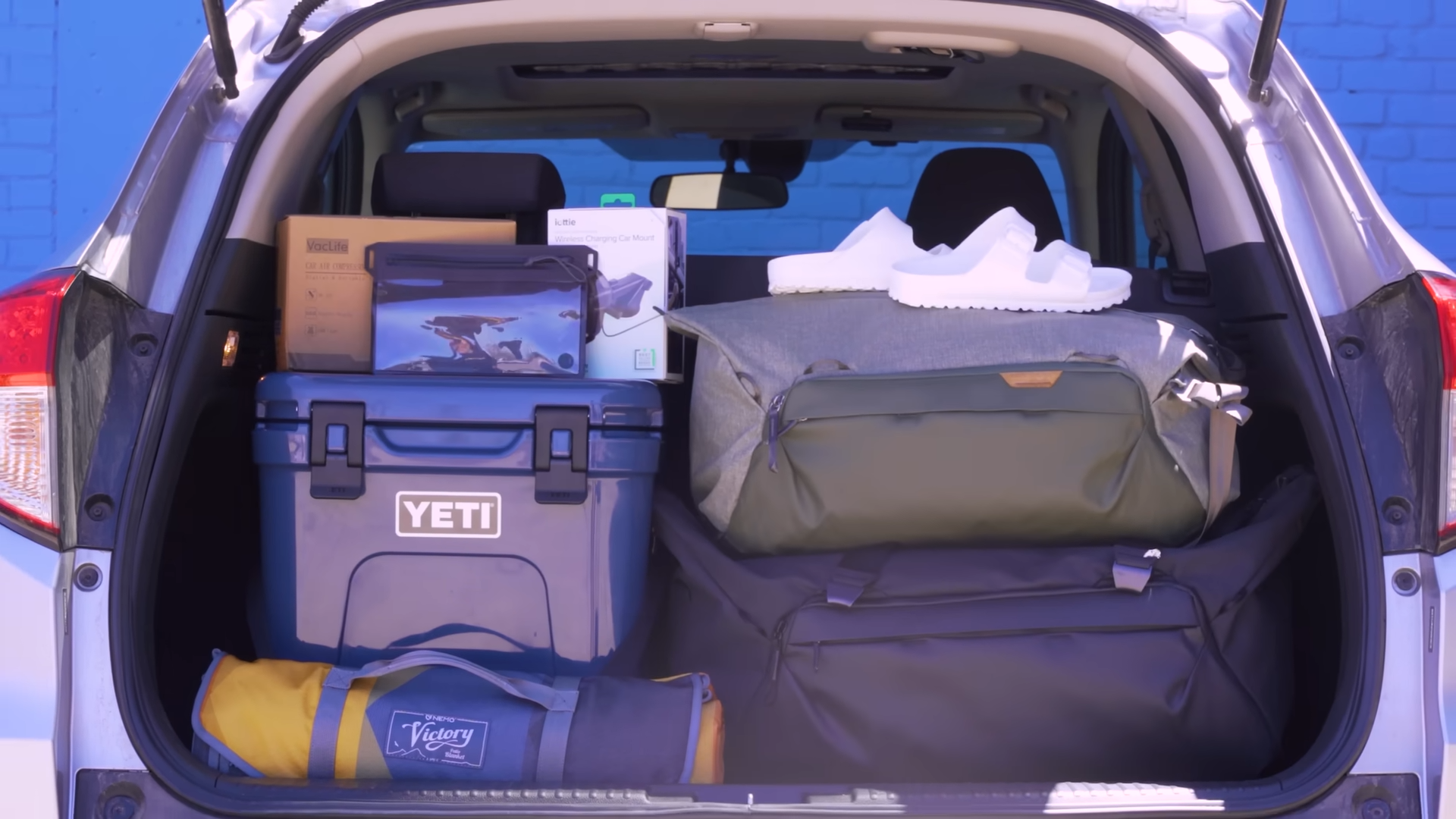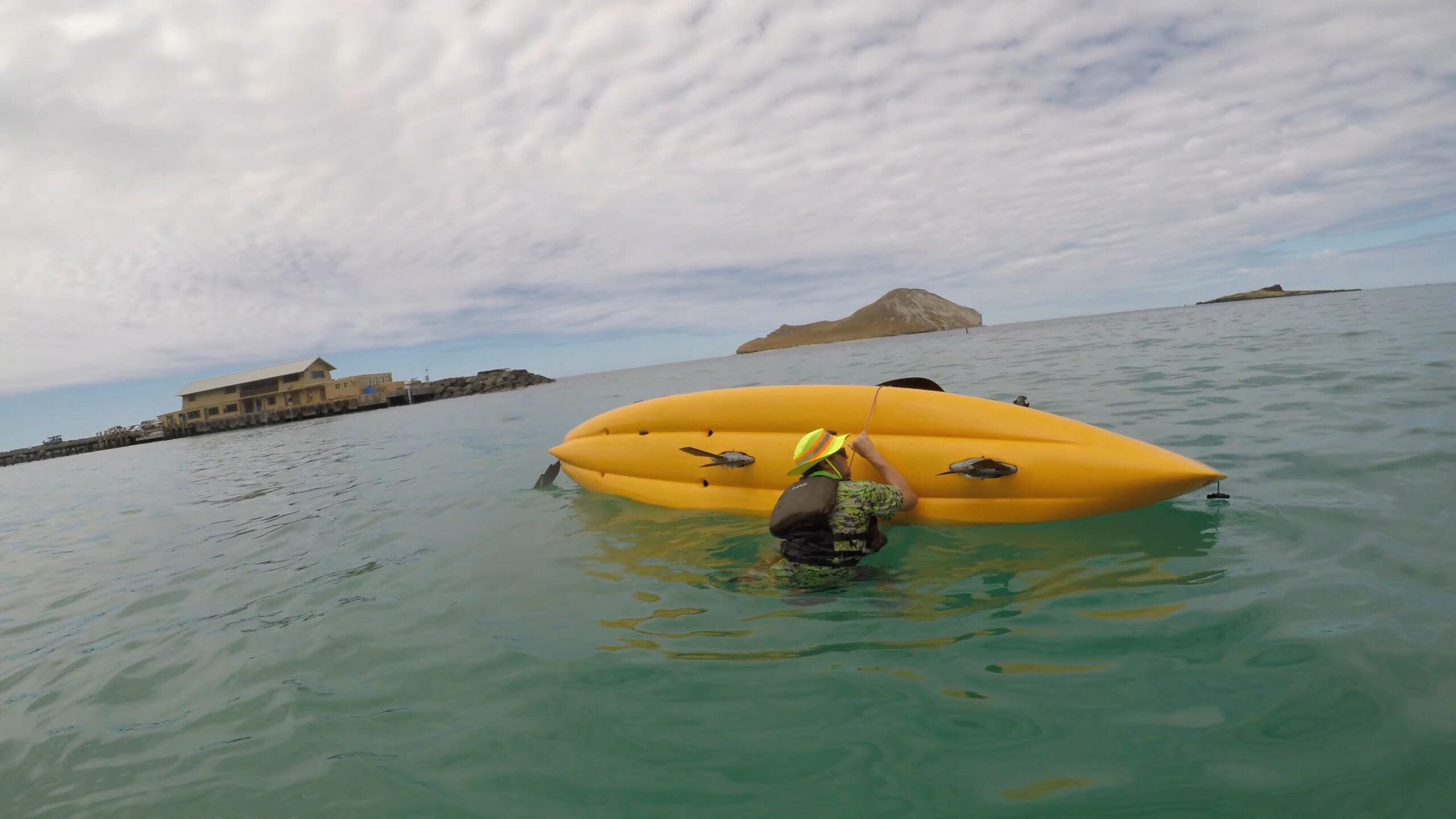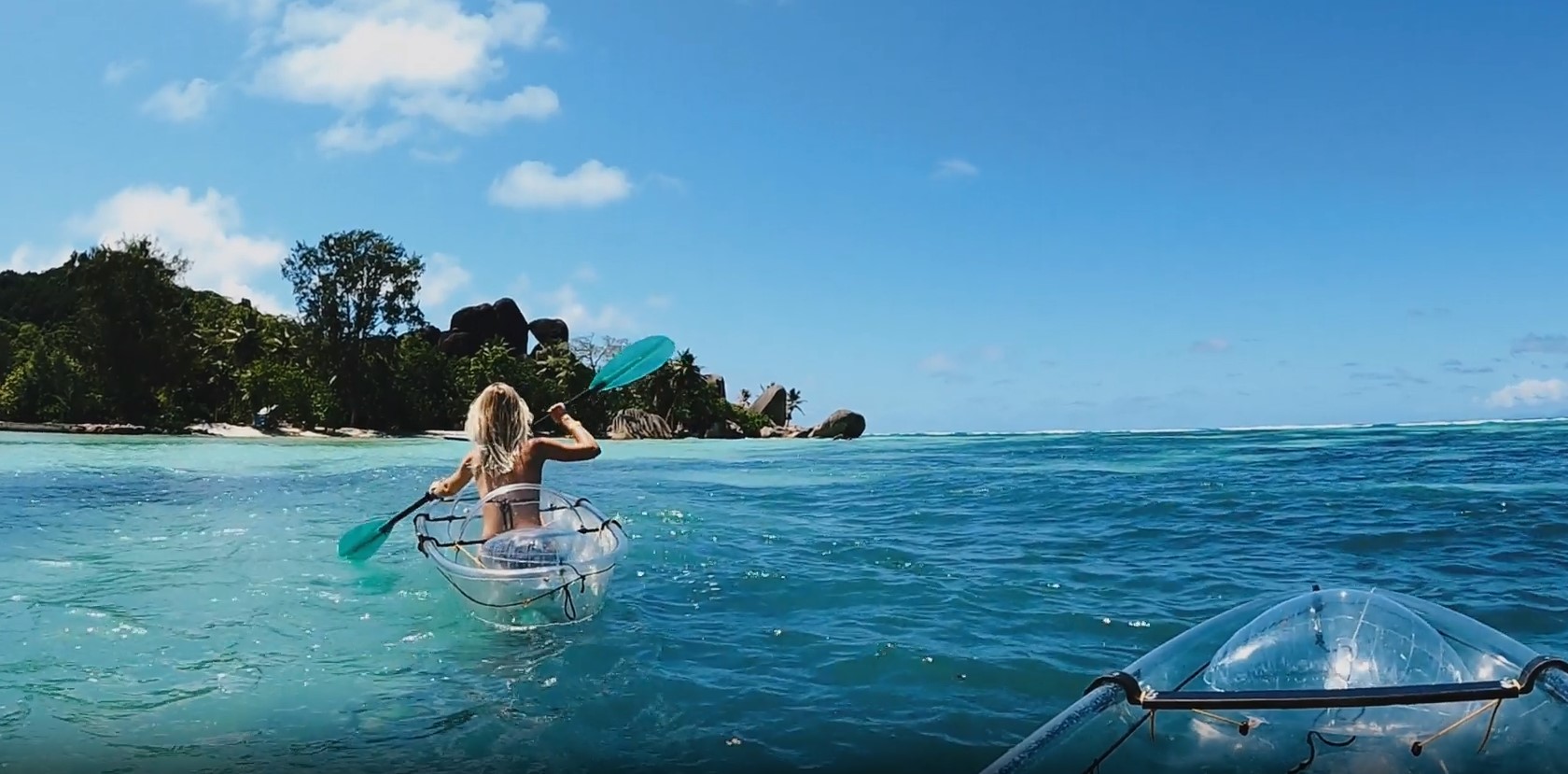The battery is one of the core matters of concern for any boat owner. If you are one then you can surely relate to it.
Cause, one wants to get stuck in their boat midwater while boating.
Marine batteries are a popular choice of battery because of their sturdiness.
But, how long does marine battery hold charge?
Well, a marine battery typically holds the charge for 12 hours. Cleanliness plays a big role in the depletion of your battery.
Loose or dirty electrical connections can also be detrimental to your battery and engine. Over-charging or undercharging also affects the battery health of a marine battery.
Interested to know more? We’ve got you covered. Cause this detailed guide has it all!
Let’s check out what it has to offer.
Table of Contents
ToggleHow Long Does a Marine Battery Hold Charge?
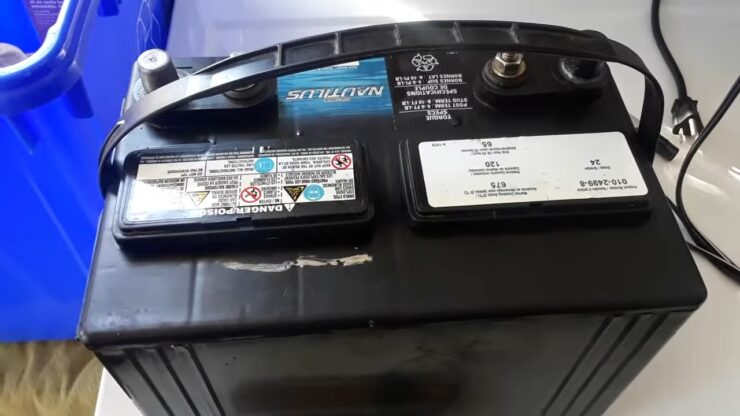
This is a common question among individuals. People who are new to boating or considering switching to a marine battery. The response varies depending on a variety of factors.
A marine battery can often store a charge for up to 12 hours. Sometimes even more. Generally, a marine battery will keep a charge longer than a standard automobile battery.
A marine battery’s lifespan is influenced by a few different variables. Marine batteries, for starters, are built to endure the weather.
They’re made to endure saline water, humidity, and other elements that might damage a normal battery.
Also, unlike automobile batteries, marine batteries are often utilized in a deeper drain cycle. They can thus be used more frequently and for longer durations. This also means they need to recharge less often.
Finally, unlike vehicle batteries, boat batteries are often built using higher-quality materials. This results in a longer lifespan even after a lot of rough usage.
Aside from that, marine batteries are supposed to last between one and six years. They’re built to resist sea condition and provide a consistent supply of power.
Different Factors Affecting the Battery Life
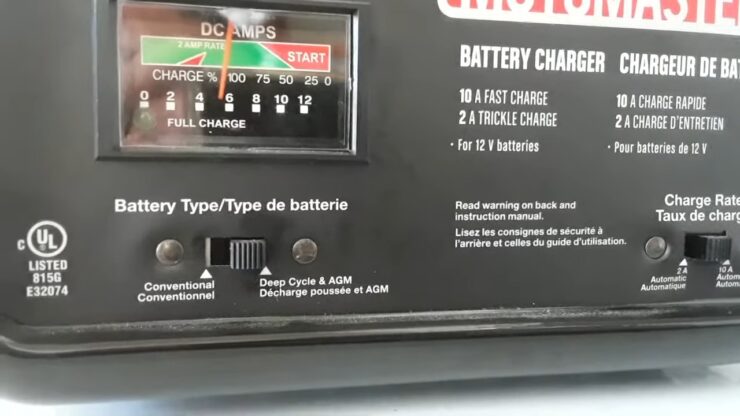
Apart from a marine battery’s natural depletion, there are many factors contributing to it. Some of which can have a huge effect on its health and lifespan.
So let’s check out the significant factors that contribute to the battery’s health.
Cleanliness
Cleanliness is the biggest and most important component in maintaining your boat’s batteries.
To keep your batteries good, working correctly, and generating the optimal output it’s vital.
Additionally, keeping your batteries clean helps ensure the longest possible battery life.
Your battery frequently has debris like dirt, dust, salt, or other trash on top of it.
And this might cause it to drain and lose battery life slowly but surely.
Despite the fact that it might seem impossible, it is true! You can easily check using a volt meter.
Use a battery voltage meter to check the voltage at the pole of the battery. Check the reading and ideally, it should be 12 volts.
Now attach the lead to the middle area of the battery where it’s dirty. You should see a voltage loss.
It’s not just that one tested location, either. The persistent depletion occurs from top to bottom of the battery if you test it.
When batteries become older, numerous components wear down and eventually fail. This may cause your outboard to not reach the RPM you should run in it.
But before diagnosing the problem you should properly know at which RPM you should run your outboard.
However, we may avoid wasting drains by maintaining the top of the battery clean. This suggestion may be put into action right away. Make certain the battery tops are tidy!
Lose or Dirty Connections
We’ve already gone through battery cleaning and other details. However, it’s also crucial to Look into other aspects affecting your battery life. Lose or dirty battery connection is one of them.
In terminals of the battery, loose or unclean connections can quickly deplete your battery’s capacity. As well as sections of the engine starting system that were not receiving enough amperage.
You can compare it to inhaling using a straw. Basically, you won’t get enough oxygen in comparison to what you need. You can keep going like that for a while but eventually, you will fail.
A similar thing happens with the battery. When it can’t transfer the optimal amount of electricity it’s gonna kill its health slowly. Even worse is it’s gonna damage your boat engine further.
Also if you have kept your engine sitting for too long, it might not start. Check out guides on starting an outboard motor that has been sitting.
Because your engine will undergo the same thing. Which is getting insufficient energy through the electrical connection. So it can cost you quite a lot of money.
Over-charging or Undercharging
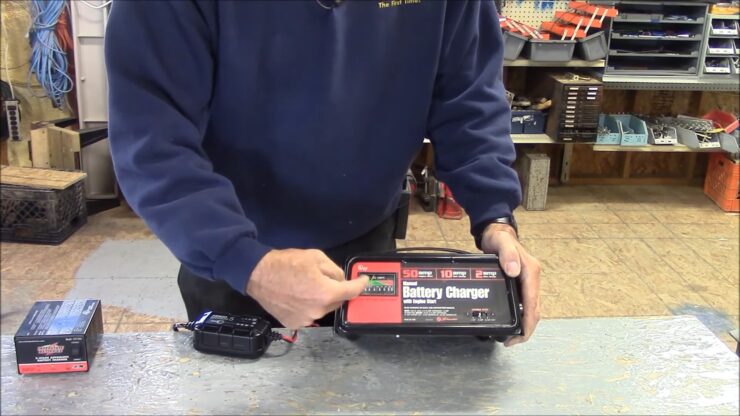
You may use a variety of chargers to recharge your battery.
However, compatibility is the most crucial factor to consider. Overcharging or undercharging your battery can severely harm the battery life.
There is a trickle charger that charges the battery slowly. But remember that slowly charging your battery is good for your battery’s health.
Bulk chargers, on the other hand, are available. These chargers can be compared with today’s fast chargers of smartphones.
They charge your boat’s battery super fast. But charging your battery too fast can also damage your battery.
So check out your battery’s specifications and then choose the right charger for you.
Maintenance
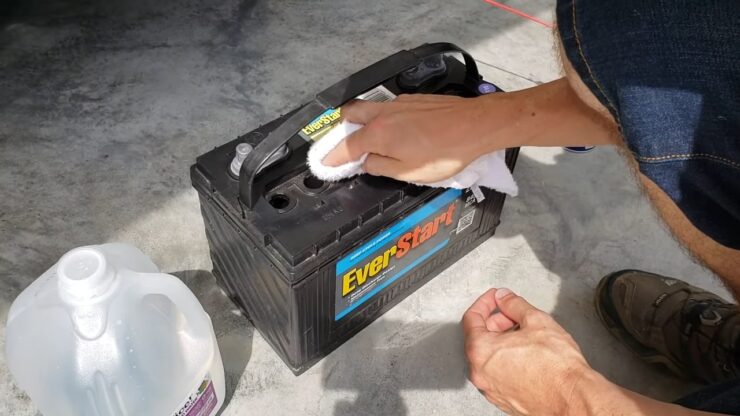
Proper maintenance is essential to keep a marine battery performing at its best and to extend its lifespan.
This includes regularly charging the battery, as well as cleaning and inspecting it for signs of damage or wear.
Over time, the connections and terminals of the battery can become corroded, which can reduce its ability to hold a charge. Cleaning these components can help maintain the battery’s performance and extend its lifespan.
Charging system
Using an incompatible or faulty charging system can damage the battery and shorten its lifespan.
It’s important to use a charger that is designed for the specific type of battery being used, and to avoid overcharging or undercharging the battery.
Using a smart charger that automatically adjusts the charging voltage and current can help optimize the battery’s performance and extend its lifespan.
In summary, proper maintenance, appropriate usage, and a compatible charging system can all help extend the lifespan of a 12V marine battery.
Additionally, selecting a high-quality battery and storing it in an appropriate environment can also help ensure a longer lifespan.
Things to Remember
There are a few crucial things to remember to keep your battery in good shape. From storing it to charging it, every little thing affects your battery.
First and foremost, you should never put away your battery and let it sit. This is the most common reason behind batteries going dead. So if your battery is sitting idle, pick it up and put it to use.
Charging is another important factor that affects your battery’s health. Not charging at the right time can be a problem.
Putting your battery to recharge right after use is the ideal way. Another trick is to completely empty the battery sometimes.
Now let’s move on to the next segment which consists of some FAQs.
FAQs
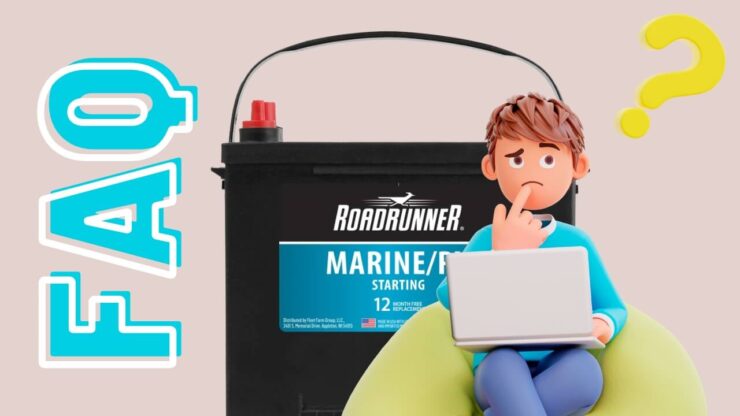
How Often Should I Recharge My Marine Battery?
You should recharge your marine battery every 30 days ideally. Each and every sort of lead-acid cell should be kept fully charged at all times.
After that, you can either recharge your cell every 30 days or consider using a smart charging system. It’s to keep your battery in good condition all the time.
How frequently do marine batteries need to be refilled with water?
After charging, batteries must constantly be hydrated. Unless before recharging, the plates are not shielded.
Around 1/8′′ of electrolyte should be used to cover the plates if they are exposed.
But remember to use only distilled water. Using acid water may cause issues.
What is the Lowest Voltage of the Battery I need for My Engine?
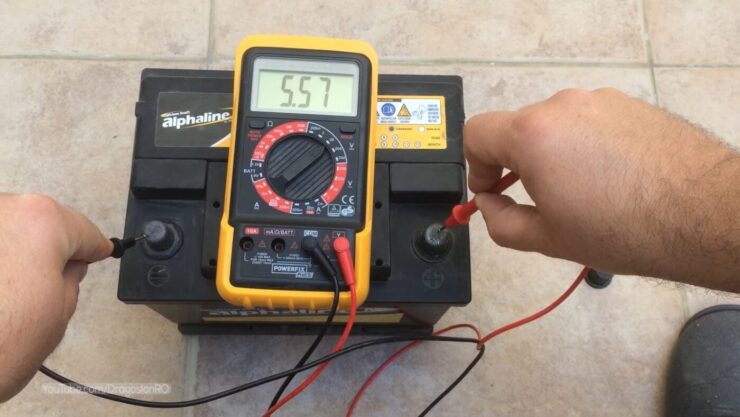
The lowest voltage of battery you need for most outboards is 9.5 volts. However, there are more expensive techniques to inspect a battery.
By employing more advanced testers. Although they are not necessary. These devices provide useful information such as cranking amperage percentages.
How long does a 12v marine battery last?
The lifespan of a 12V marine battery can vary depending on several factors, such as the type of battery, its quality, and usage patterns.
In general, a well-maintained deep-cycle marine battery can last 3 to 5 years or more, while a standard marine battery may last 1 to 2 years.
Conclusion
That will be all on how long does marine battery hold the charge. Hopefully, you got all the answers you were looking for.
Remember a swollen battery can be a matter of concern. So if you come across one do get rid of it immediately.
I’m Liam Jackson, the proud owner and driving force behind KayakPaddling.net. Born somewhere in the expansive beauty of the United States, I’ve nurtured a lifelong passion for kayaking and fishing that has led me to explore the far corners of our nation’s waterways.
Related Posts:
- 16 Best Kayak For Beginners 2024 - Kayaking Adventure Gear
- 12 Best Beach Wagons & Carts 2024 - For All-Terrain
- How to Charge A Boat Battery on the Water? 2024 - In…
- 10 Best Fish Finders Under $200 2024 - Top Affordable Picks
- 16 Best Kayak Fishing Paddles 2024 - Affordable Fishing Gear
- 20 Best Inshore Spinning Reels 2024 - Capturing All…

